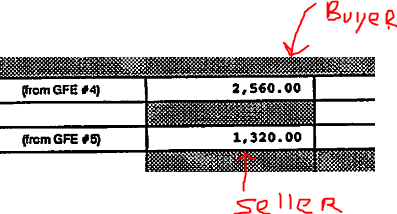 Many clients think that if they miss one mortgage payment, the bank will immediately come by, change the locks and repossess their home. Nothing could be further from the truth.
Many clients think that if they miss one mortgage payment, the bank will immediately come by, change the locks and repossess their home. Nothing could be further from the truth.
Foreclosures take more than 1 year in Illinois. During that time, the owner, not the bank, is entitled to possession of the property. Near the end of the foreclosure, the sheriff’s sale is held, at which the bank becomes the new owner of a house in a foreclosure. The sheriff’s sale is about 1 year after the foreclosure is filed. The bank finally gets “possession” of the house about 60 days after the sheriff’s sale.
Even after the bank gets an order of possession, the bank has to file the order with the sheriff’s office for a physical eviction. That will take anywhere from 3 weeks to 2 months depending on the time of the year. In Cook County, physical evictions are halted around the holidays and are also stopped if the temperature drops below 15 degrees. So if you are a foreclosing bank all I can say is good luck evicting someone between December and February, because it will take forever.
“Cash-for-keys” is a humane alternative to physical eviction after a foreclosure that has become fairly routine. The foreclosing bank pays the owner to leave the property by a certain date, thus ending all the drama, worry and delay inherent in changes of possession after a foreclosure.
So how does one work out a cash-for-keys arrangement?
1. Contact the real estate agent for the bank after the sheriff’s sale. After the sheriff’s sale, the attorney for the bank usually will know the name of the real estate agent who is handling the resale of the property for the bank. Contact that agent and say you would be interested in receiving “relocation assistance” which is the formal legal buzzword for cash-for-keys. Generally, the agent will check with the bank and will call back with an offer.
2. How much will I get? The payment varies but it’s usually between $1000 to $2000. Some agreements pay you less the longer you stay in the property. Most agreements pay a a flat fee to leave by a certain date.
3. How much time will I get in the property? That varies, but it is usually about 30 to 60 days from the time the agreement is reached with the agent.
4. Will I get a check upfront? Sorry, no. Most agreements call for payment when the property is vacant and in broom clean condition. The agent meets you at the property, inspects it and gives you a check on the spot.
5. Do I have to sign an agreement? Yes, you will have to sign an agreement that says the property will be delivered in good condition and the agreement will release the bank from any liability.
So if you are nearing the end of a foreclosure I would highly suggest working out a cash-for-keys deal with the lender. The bank will pay you to leave and that’s good for both parties.



